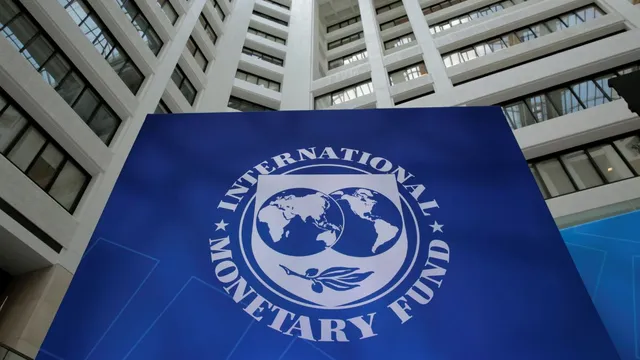- By Supratik Das
- Sun, 18 May 2025 01:01 PM (IST)
- Source:JND
In a major development, the International Monetary Fund (IMF) has put 11 new conditions on Pakistan as a requirement for releasing the next tranche of its bailout programme, a report in The Express Tribune said on Sunday. The Staff Level Report of the IMF, issued on Saturday, points to vulnerabilities of Pakistan's economy, as well as increasing geopolitical tensions with India as a possible risk factor for the programme's fiscal and reform objectives.
IMF flagged the risk of heightened tensions between Pakistan and India particularly in the context of cross border situation threatening the macroeconomic stability of Pakistan. The report adds that despite markets being relatively stable so far, “continued or heightened hostilities” may derail reform momentum. The report comes in the backdrop of India's precision strikes under Operation Sindoor on May 7 against terror infrastructure in Pakistan-occupied territories. The strikes followed the April 22 Pahalgam terror attack that killed 26. In return, Pakistan allegedly tried to strike Indian military bases between May 8 and 10. An understanding to de-escalate was achieved on May 10 after four days of intense hostilities.
Major Budget and Legislative Reforms Needed: IMF
One of the most important of the 11 new IMF conditions is the approval of Rs 17.6 trillion federal budget for FY2026 by parliament in accordance with IMF fiscal objectives. Development expenditure in this budget has been set at Rs 1.07 trillion. The IMF also pointed out Pakistan's budgeted defense budget hike to Rs 2.5 trillion, 18 per cent more than the money allocated in the past and much higher than the IMF estimate of Rs 2.414 trillion. The hike is added amid the recent stand-off with India.
A significant condition aims at the provinces of Pakistan. All four federating units have to introduce new Agriculture Income Tax legislation by June 2025. This comprises the establishment of platforms for return processing, taxpayers' identification, commencement of awareness campaigns, and enhancing compliance. The IMF has also demanded the publication of a Governance Action Plan based on its Governance Diagnostic Assessment, aimed at tackling critical structural vulnerabilities.
Energy sector reforms dominate the list of new conditions. The IMF mandates:
• Annual rebasing of electricity tariffs to be notified on or before July 1, 2025.
• Semi-annual adjustment of gas tariffs on or before February 15, 2026.
• Permanant enactment of the Captive Power Levy Ordinance by end-May.
• Elimination of the Rs 3.21/unit cap on debt service surcharge by June end.
The IMF has instructed Pakistan to remove restrictions on imports of used cars and permit commercial imports of cars with up to five years of age. Presently, only those with up to three years of age are permitted. This law has to be brought to Parliament by end-July 2025. Another structural long-term change includes the phasing out of all Special Technology Zones and Industrial Parks related fiscal incentives. Pakistan needs to develop a detailed exit plan by end-2025, as a part of rationalising its tax policy architecture.
The Express Tribune report said with these 11 additions, the number of IMF conditions on Pakistan has reached 50, reflecting the scale and depth of economic adjustment required by the country.

